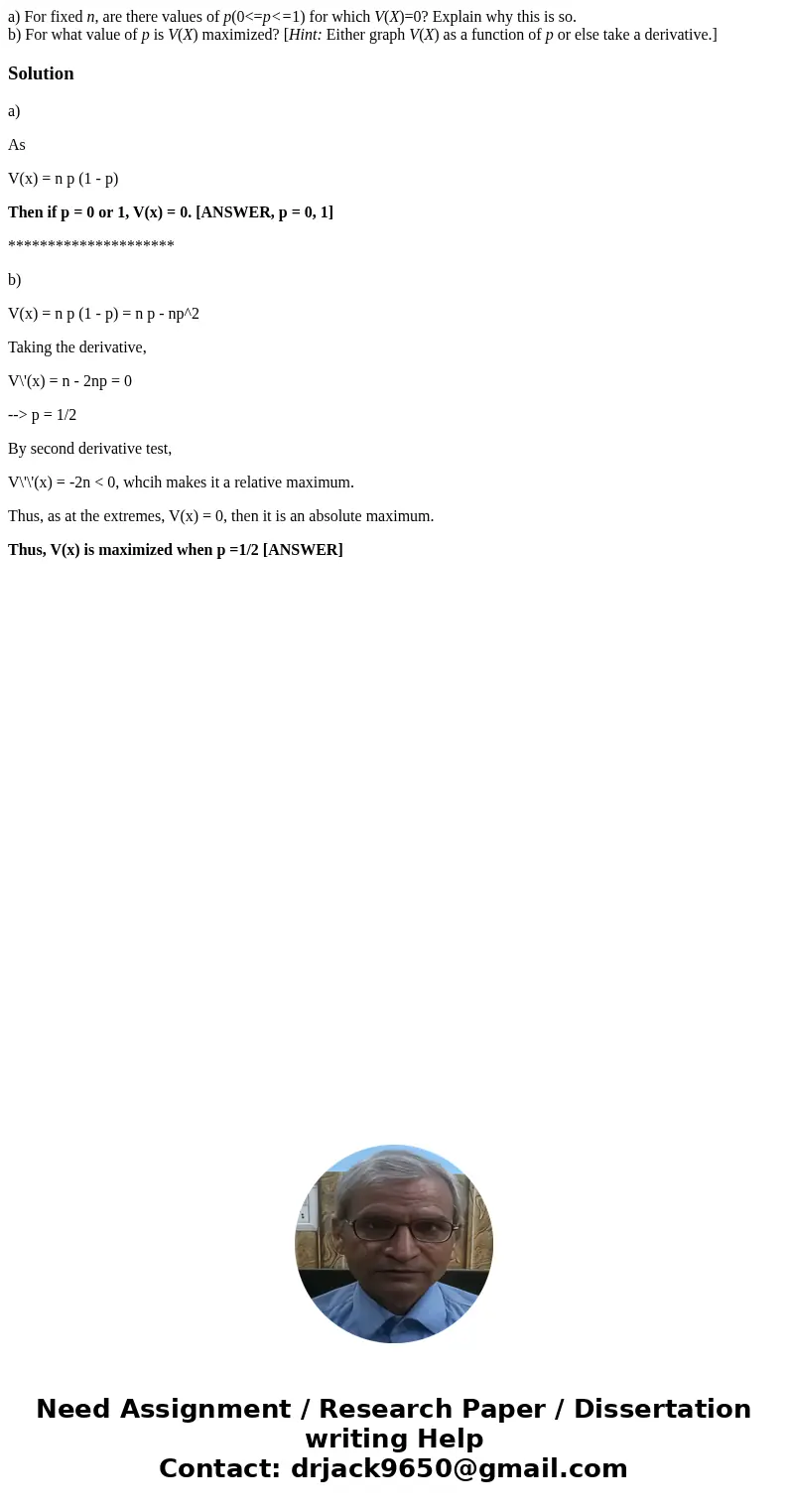a For fixed n are there values of p0
a) For fixed n, are there values of p(0<=p<=1) for which V(X)=0? Explain why this is so.
b) For what value of p is V(X) maximized? [Hint: Either graph V(X) as a function of p or else take a derivative.]
Solution
a)
As
V(x) = n p (1 - p)
Then if p = 0 or 1, V(x) = 0. [ANSWER, p = 0, 1]
*********************
b)
V(x) = n p (1 - p) = n p - np^2
Taking the derivative,
V\'(x) = n - 2np = 0
--> p = 1/2
By second derivative test,
V\'\'(x) = -2n < 0, whcih makes it a relative maximum.
Thus, as at the extremes, V(x) = 0, then it is an absolute maximum.
Thus, V(x) is maximized when p =1/2 [ANSWER]

 Homework Sourse
Homework Sourse